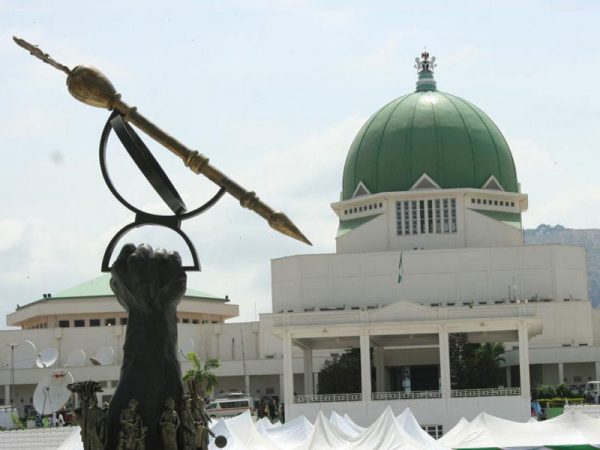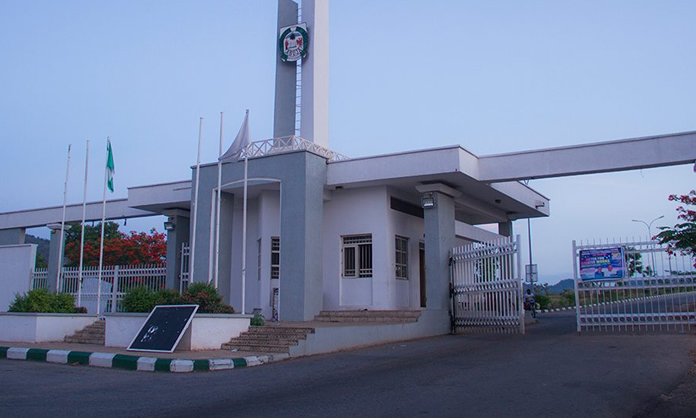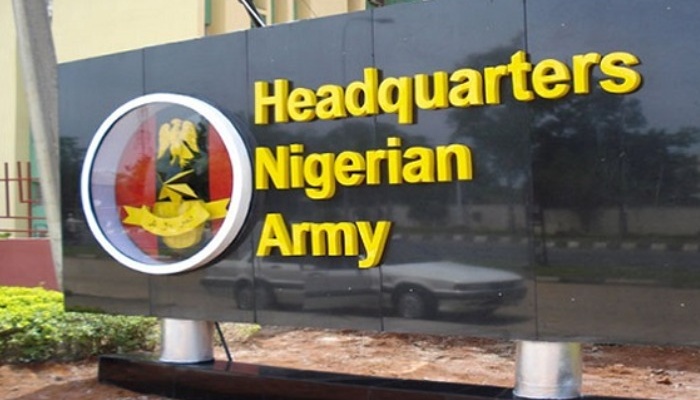Bills for the establishment of 74 new federal health institutions are at various stages at the National Assembly, despite poor funding of the existing ones, Daily Trust on Sunday can report.
This is coming at a time the health ministry, which runs federal health centres, is getting meagre budgetary allocation that is far below the African standard for the health sector.
Some analysts have described the penchant by legislators to sponsor bills for various projects without clearly studying implications of such moves, apart from scoring cheap political goals, as not only a misplacement of priority but a betrayal of trust and plunder of resources.
Experts were also divided over the procedure being followed by the lawmakers for the establishment of institutions including those in the health sector. While some suggested that the lawmakers should have merged the 74 bills into one, others, however, described it as normal and reflective of global parliamentary procedure.
Mohammed Al-Amin, a political scientist who wants the 74 bills merged, argued that “this upside-down law-making process that we are practising is wrong. This is not what is obtainable in other countries. These hospitals are necessary but the process of actualising them is faulty, cumbersome and encourages wastage. It should be done at once through one bill to reduce cost and waste of resources.”
But an expert at the National Institute of Legislative and Democratic Studies (NILDS), who is in support of the procedure being used by the parliament, said for the institutions to operate as legal entities, there must be separate bills for each of the proposed hospitals.
“It is a normal parliamentary procedure and constitutional provision that each institution be established through a bill for it to operate as a legal entity which can sue and be sued.
“If you establish all the 74 hospitals through a bill, if one of them is sued, the remaining 73 will be liable. This is the rationale for having separate laws for each government establishment,” he said.
The African Union’s 2001 declaration mandates member states to allocate at least 15 per cent of the national budget to the health sector.
But Nigeria’s health allocation has been hovering between 4 and 7 per cent of the total budget. Countries like Rwanda, Swaziland, Ethiopia, Malawi, the Central African Republic, Zambia, Burkina Faso and Togo have since kept to the promise of the ‘Abuja Declaration’ on healthcare funding.
Experts outline challenges bedevilling the Nigerian health sector to include brain drain by medical personnel, incessant industrial actions, dilapidated infrastructure, obsolete equipment, inadequate manpower, stock-outs of essential medicines, poor electronic medical records, emergency services and attitude of staff, few or no ambulance services, ineffective national health insurance systems, and poor health indices, among others.
Data from the Federal Ministry of Health showed that there are 21 federal teaching hospitals, 21 federal medical centres, eight federal neuro-psychiatric hospitals, three orthopaedic hospitals, one eye centre and one ear care centre.
Despite the chronic underfunding of the existing institutions, federal lawmakers want new ones established mostly in their constituencies.
To set up new public health facilities, the federal government usually approves a take-off grant after which it leaves other expenses including running costs to the health ministry to shoulder through its annual budgets.
Nigeria’s average budget allocation to the sector was about 4.7 per cent across two decades. The health budget peaked at 6.2 per cent in 2012, still below the 15 per cent commitment in the Abuja Declaration, according to a 2021 report by Partnership for Advocacy in Child and Family Health at Scale (PACFaH@Scale), a social accountability project implemented by a coalition of health NGOs and professional associations.
Amid the ongoing COVID-19 pandemic, the country’s allocation to health for the 2021 fiscal year is 4.5 per cent. The budget covers the salaries of health workers and other logistics involved in the daily running of the health ministry and health facilities, including construction and rehabilitation, purchase and maintenance of equipment, interventions against diseases, among others.
In 2001, N39.3bn was allocated to the health sector; N44.7bn in 2002; N52.2bn in 2003; N59.8bn in 2004; N71.7bn in 2005; N106.9bn in 2006 and N123.9bn in 2007. The health budget was N144.7bn in 2008; N154.6bn in 2009; N164.9bn in 2010; N257.9bn in 2011; N282.8bn in 2012 and N283.1bn in 2013.
The allocation to the sector declined to N264.5bn, N259.8bn and N250.1bn in 2014, 2015 and 2016 respectively.
It, however, witnessed increase to N308.5bn in 2017; N411.6bn in 2018; N423.9bn in 2019; N414.5bn in 2020 and N549.8bn in 2021. In the 2022 proposal currently in the National Assembly, N711 billion is voted for the health sector.
PACFaH@Scale, which has analysed the country’s allocation to the health sector for over two decades, said in 20 years, recurrent expenditure represents 78% of the total health expenditure, while capital only represents 22%.
Comparing the growth rate, recurrent expenditure has increased by 2,822% between 2001 and 2021, while capital has only increased over 400%.
This significant difference shows the government has prioritized human resources and office overheads. However, the reality is that Nigeria is in dire need of health workers, the report said.
Currently, there are 74 bills before the National Assembly seeking to establish federal hospitals in different parts of the country.
Analysis of the bills showed that 29 are being considered in the Senate and 45 in the House of Representatives. In the Red Chamber, there are bills for the establishment of 19 federal medical centres, four orthopaedic hospitals, three teaching hospitals and one paediatric centre, dermatology hospital and nephrology centre each.
The federal medical centres proposed in the Senate are to be situated in Dekina, Kogi; Rigasa Kaduna; Kuta, Niger; Rano, Kano; Gada, Sokoto; Owutu Edda, Ebonyi; Kaura Namoda, Zamfara; New Bussa, Niger and Osogbo, Osun.
Others are Ijebu Ode, Ogun; Nkpologu, Enugu; Uli, Anambra; Obukpa Nsukka, Enugu; Onitsha, Anambra; Kabba, Kogi; Ode-Irele, Ondo; Mubi, Adamawa; Damasak, Borno and Deba, Gombe.
In the House of Representatives, there are bills seeking to establish 36 federal medical centres, two teaching hospitals and three neuro-psychiatric hospitals, three eye centres and one ear care centre.
The proposed federal medical centres are to be sited in Abakaliki, Ebonyi; Ogoja, Cross River; Onitsha, Anambra; Mangu, Plateau; Igboora, Oyo, Piapung, Plateau; Ilesha, Osun; Fufu, Kwara; Oghara, Delta and Ganduje Dawakin Tofa, Kano.
Others are: Jebba, Niger; Billiri, Gombe; Mubi, Adamawa; Kwoi, Kafanchan, Kaduna; Hong, Adamawa; Amagu Ikwo, Ebonyi; Ufuma, Anambra; Illeh Ekpoma, Edo; Zuru, Kebbi; Akpugo, Enugu; Ankpa, Kogi; Ila-Orangun, Osun; Rano, Kano; Ikirun, Osun; Uromi, Edo; Okigwe, Imo; Rogo, Kano; Toro, Bauchi; Igboho, Oyo; Mgbakwu, Anambra; Wase, Plateau; Bonny, Rivers; Ovwian, Delta; Okerokpe Delta and Chokocho, Rivers.
Two teaching hospitals are proposed to be established in Lokoja, Kogi and Lafia, Nasarawa; three neuro-psychiatric hospitals in Anambra, Kwara and Benue; three eye centres in Kogi, Edo and Kaduna and one ear care centre in Imo State.
Rivalry over location of proposed health facilities
The push for the establishment of more federal health institutions has created rivalry between lawmakers who, most times, want projects to be cited in their constituencies.
Last month, some federal lawmakers from Gombe South accused Senator Danjuma Goje (Gombe Central) of sabotaging the establishment of a Federal Medical Centre (FMC) in Billiri, Gombe State.
Two bills seeking the establishment of federal medical centres in Gombe State are currently before the Senate and House of Representatives.
One is seeking the proposed FMC to be cited in Billiri, the other, sponsored by Goje, proposed Deba as the host of the health facility.
The House bill was passed on July 8, 2021 and was transmitted to the Senate for concurrence on September 16, 2021. However, Goje’s bill passed second reading in the Senate in September 2021.
Senator Bulus Amos (Gombe South), Hon. Victor Mela Danzaria (Billiri federal constituency) and Karu Simon Elisha (Kaltungo Shongom), in a joint statement, described Goje’s bill for the establishment of another FMC in Deba as a divisive plot to subvert a bill passed by the House for the same FMC in Billiri.
However, Senator Goje said citing the proposed FMC in Deba would serve three states of Gombe, Adamawa and Borno because the town is strategically located on the highways connecting some local governments in North East.







